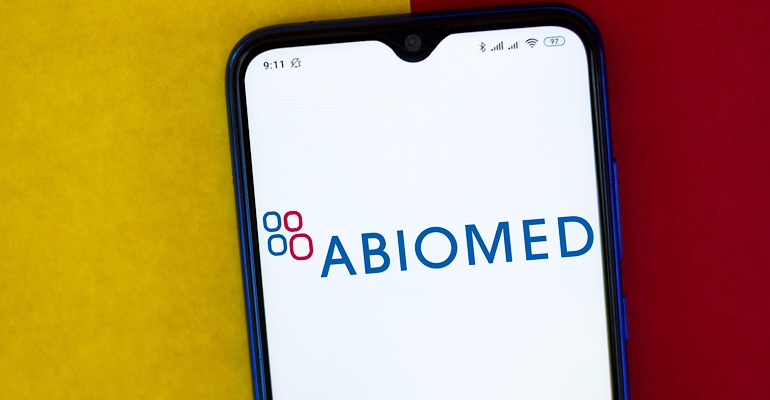Abiomed's Successful Early Feasibility Results for preCardia Device
The device is designed to improve decongestion in acutely decompensated heart failure (ADHF) patients.
January 12, 2022

There’s more good news for Abiomed coming into the new year. The Danvers, MA-based company reported successful results of the VENUS-HF Early feasibility study of the precardiac system.
News of the first-in-human feasibility study comes as the company contended with uncertainty caused by the Delta variant and hospital labor shortages throughout 2021.
Abiomed's device is designed to improve decongestion in acutely decompensated heart failure (ADHF) patients by intermittently occluding the superior vena cava.
The study examined 30 patients with ADHF who were assigned preCARDIA therapy for 12 or 24 hours. The primary endpoint was a composite of major adverse events through 30 days. The study found:
Freedom from device- or procedure-related major adverse events in 100% of patients; successful placement, activation and removal of preCARDIA in 97% of patients; right atrial pressure decreased 34% from baseline (p<0.001); pulmonary capillary wedge pressure decreased 27% from baseline (p<0.001); urine output increased by 130% from pretreatment values (p<0.01); and net fluid output increased by 156% from pretreatment values.
“The study met the safety and feasibility endpoints and suggests for the first time that with the preCARDIA system it is possible to rapidly reduce cardiac filling pressures and augment urine output by intermittently occluding the superior vena cava in patients with ADHF,” said Navin Kapur, MD, the study’s lead author and executive director of the CardioVascular Center for Research and Innovation at Tufts Medical Center.
The results support additional study of preCARDIA. In November, Abiomed authorized preCARDIA’s early feasibility study to be expanded by 30 additional patients to a total of 60 patients.
The unpredictability of the pandemic harshly impacted many companies like Abiomed. At one point in the year, the company reduced sales guidance by $20 million -citing hospital staffing shortages.
However, 2022 is looking a bit brighter. In addition to the feasibility study results, the company had some regulatory wins. The firm announced receiving regulatory approval in Japan and Hong Kong for the Impella 5.5 with SmartAssist.
Marie Thibault, an analyst with BTIG and former managing editor of MD+DI wrote in a research note that the approvals could give the company significant momentum.
“This was a nice surprise ahead of the JPM Healthcare conference as initial expectations were set for April 2022,” Thibault wrote. “We previously noted that Japan has been a strong contributor to growth and we think that adding Impella 5.5 may offer another leg of growth since few heart transplants and sternotomies are performed in the country.”
About the Author(s)
You May Also Like



.png?width=300&auto=webp&quality=80&disable=upscale)
